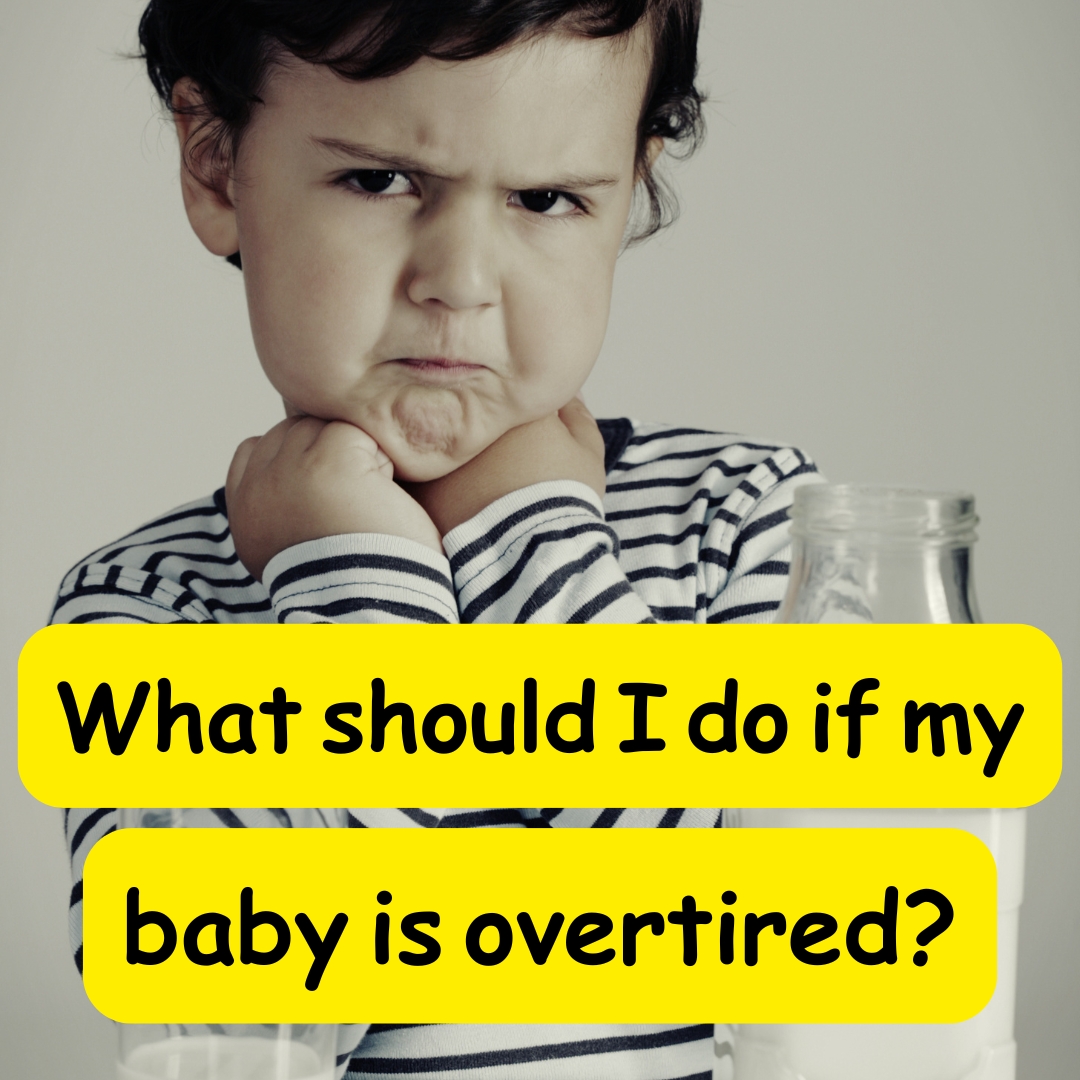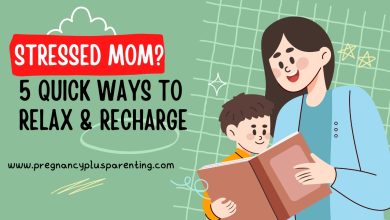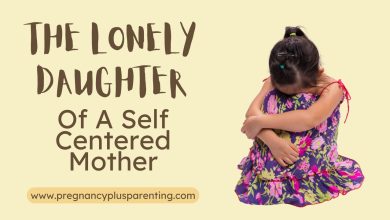Overtired Baby Won’t Sleep? Prevention Tips to Save the Day!
Pretty much all parents know the situation: The baby is overtired but doesn’t want to go to sleep. Or rather, it ca n’t fall asleep.
Baby sleep is a big and important topic. Infants have to learn to sleep. They need time to develop a day-night rhythm, and above all, they need security and help falling asleep.
Good, restful sleep is also of utmost importance for babies. Every child is different and has different needs, even when it comes to sleep.
However, there are general tips that can help you achieve a better sleeping environment and sleeping habits.
It’s a good idea to learn more about baby sleep and their sleep phases . Why don’t babies just fall asleep?
Why can’t my baby settle down? How do I even know if my baby is tired? Why doesn’t he sleep through the night?
In this article you will find the answers to these and similar questions.
When babies don’t want to sleep
For some parents, it sometimes seems as if their baby just doesn’t want to sleep. However, infants can’t adhere to our circadian rhythm because they have to learn it first.
Only in very rare cases are there organic causes behind babies having difficulty sleeping and falling asleep.
Often it is due to reasons such as overtiredness, unfamiliar surroundings, illness or developmental spurts .
A classic example is when the first teeth erupt . Many parents find that even babies who are normally good sleepers have trouble settling down while teething.

Why can’t my baby calm down?
If you are sure that your baby is tired but cannot rest, then it is probably overtired.
This is caused by a lack of sleep, as the baby was awake longer than his small body could actually manage.
This causes stress hormones such as adrenaline and cortisol to be released, which the baby suffers from.
These hormones keep the baby awake, even though it’s dead tired. If the baby was fussy just a short time ago and is now wide awake, it’s already overtired.
This causes stress and frustration for the little one. This is why babies have such a hard time falling asleep when they’re overtired. Always watch for the first signs of tiredness so you can help your baby fall asleep in time.
Crying, like hunger, is a very late sign! If your baby turns away or averts their gaze, that’s already a sign that they’re tired.
Other symptoms of tiredness in babies include glassy eyes, whining and yawning, rubbing the eyes, clenching the fists, or pulling at the ears. The baby’s movements also become less coordinated.
Your child doesn’t necessarily have to show all of these symptoms when tired. Often, there’s a characteristic sign that should be looked out for.
So if your baby rubs his eyes or shows any of the other signs mentioned, please don’t wait for more.

Newborn overtired but doesn’t want to sleep
A newborn should not stay awake for more than one or two hours at a time, including the time needed to feed him or her.
Otherwise, it can easily lead to overstimulation if too many impressions bombard a newborn.
Overstimulation also makes it very difficult for an infant to fall asleep. This often causes stress for parents as well, as they feel powerless and struggle to calm their child.
The baby also feels this stress and reacts with increased crying. Unfortunately, this often creates a vicious cycle.
It is therefore especially important to pay attention to the first signs of tiredness in newborns and small infants.
It is best to ensure a quiet and comfortable sleeping environment for the baby and his great need for sleep after an hour in which the baby has been awake.
How can I calm my baby?
Not only adults, but also babies need to vent their frustration when they are overstimulated, overtired or have other problems.
Wanting to calm a crying baby down as quickly as possible is understandable, but unrealistic.
You wouldn’t want someone to immediately shut you up if you’re upset or worried about something, would you? So, the first step is to accept and embrace the situation.
Take your child to a quiet, perhaps darkened, environment. Reduce environmental stimuli.
Carrying your baby around, cuddling him, and talking to him in a gentle voice probably won’t work immediately, but you should keep at it until he calms down. Please never let him cry!
A young baby simply cannot regulate itself and needs help from parents or caregivers to fall asleep.
If your baby is already past the first few months of life and you are worried that he or she has gotten used to being carried around before falling asleep, then try putting him or her in his or her crib, but stay there and maintain physical contact.
For example, place your hand on his stomach or head.
To rule out other unmet needs besides tiredness, you can check the diaper and offer a meal. Please keep in mind that even if your baby is very hungry, it may take some time for them to calm down enough to eat.
What should I do if my baby is overtired?
For overtired and overstimulated babies, even prolonged carrying often doesn’t help. Once you’ve realized that your little one is far too tired to calm down, let alone fall asleep, first accept the situation.
Here’s how you can ease the pressure. Calmness and patience are required now. Of course, it’s heartbreaking to see your baby so distressed and hear them crying. The impulse to change things immediately is understandable.
Always reassure yourself that your baby is not harmed and will soon be well again.
Take them into your own hands and try to calm yourself down first. Breathe deeply and speak to your child in a gentle voice.
It’s best to change your surroundings and be in a quiet room. You can darken the room later.
Your baby may react to another change with even more crying.
The opposite can also be the case: Your child may suddenly stop crying if you play quiet sleep music that they don’t yet know.
It pricks up its ears, listens attentively, soon cuddles up to you and falls asleep after a while.

What to do if babies don’t want to sleep?
It is important that parents create the conditions for their baby to develop a healthy sleep rhythm in the first few months.
The later you do this, the harder it will be to adjust. Here’s what you should do:
1. Provide security
Closeness and security are essential for babies to fall asleep. Therefore, a co-sleeper should be placed in the parents’ bedroom.
Fortunately, very few parents think of letting a newborn sleep in another room.
Swaddling is still a popular method for some parents to get their baby to sleep or to calm them down.
It can prevent the child from rolling over while sleeping . Some parents resort to this wrapping technique because they are very afraid of sudden infant death syndrome.
But be careful, the ancient wrapping technique is controversial!
The North Rhine Association of Paediatricians rightly warns against tightly wrapping babies.
Contrary to what you may read and hear in many places, swaddling does not remind babies of their time in the womb.
After all, babies lie in the fetal position in the womb, where they can still move easily. When swaddled, however, babies lie stretched out and cannot move.
It is not a problem if babies are woken up by twitching in the first few weeks.
This is part of their development. But if they are swaddled too often and too tightly, nerves can become pinched, heatstroke can occur, or the baby may even be unable to breathe properly.
2. Check your sleeping environment
Some babies simply sleep poorly if the environment is not suitable.
Ventilating the bedroom well, darkening it and keeping it pleasantly cool can work wonders for some children.
The ideal room temperature is 18 degrees Celsius. Perhaps your baby is too warm? Perhaps he or she is dressed too warmly?
Could it be because you’ve recently started putting your child in their own bed during the day instead of the big family bed? Or is there another, perhaps more subtle, change in their sleeping environment?
3. Establish regular bedtimes
Even for the youngest children, it is advisable to always end the day at the same time.
Evening rituals like bathing, listening to quiet music, and cuddling at set times help the whole family to relax. Babies naturally sense this.
In this way, they adjust to regular bedtimes and quickly learn that falling asleep is something pleasant.
4. Introduce rituals and rethink them if necessary
Regular bedtimes are best accompanied by well-thought-out evening rituals.
A bedtime ritual may seem like a mere repetition to you, but for babies, it provides guidance and, therefore, security.
After only a few months of life, babies can understand that after this or that lullaby, for example, they are cuddled and breastfed, and then a nap is due.
Provided the ritual has been repeated often enough and the baby likes it.
Babies under six months, for example, aren’t very good with books, so reading aloud as a bedtime ritual may not work yet.
Perhaps, contrary to expectations, your baby is wide awake and alert after bathing instead of being sleepy?
Or maybe you don’t allow yourself enough time for your evening routine? When it’s time for your evening ritual, it’s best to turn off the TV and radio.
Parents should also avoid using their mobile phones, no matter how great the temptation may be.
5. Switch to sleep mode in the afternoon
So many impressions of the day that bombard babies often don’t allow the little ones to really rest in the evening.
You might be thinking that there was so much going on during the day that my baby would literally fall asleep.
But a child’s brain is working at full speed. Especially in summer, when the daylight is longer and you ‘re out and about with your baby much more often , your child has a lot to process.
So try to go home from the playground in the late afternoon instead of in the evening.
Quiet activities should then take place there before bedtime is ushered in with evening rituals.
6. Feed to sleep
It’s certainly not wrong for your baby to fall asleep at your breast. Where could it be more comfortable and pleasant than right next to mom and the source of nourishment?
Even a warm bottle will trigger digestion, making them tired and sleepy. However, care should be taken with bottle-fed babies to prevent cavities if their first teeth have already erupted.
So it’s better to brush your teeth before going to bed.
For breastfed babies, there are no concerns, as breast milk doesn’t harm teeth. A major advantage of breastfeeding…
Breastfeeding also fits perfectly with nighttime sleep.
For example, the mother can feed the baby while lying down. Once the little one has fallen asleep again after the feeding, they can continue sleeping in the parents’ bed without any major complications.
7. Unpack the baby carrier or stroller
Some babies love being pushed around in a stroller. Others prefer to be in a baby carrier or sling , so they can be close to mom or dad.
Many children fall asleep when gently rocked. This is, of course, provided they feel comfortable. If your little one hasn’t been in a stroller very often , pushing might not work.
Please remember: In the first few weeks of life, a baby is simply not capable of self-regulation. They also can’t calm themselves. You’re not doing anything wrong if your baby falls asleep close to your body .
Before putting your baby down, wait until you’re sure your baby is relaxed and sleeping soundly. This will take about 20 minutes.
Of course, sometimes there are more, sometimes less. You’ll soon be able to estimate this.
8. Encourage self-soothing in your baby
After about the first three months of life, you can start encouraging your baby’s self-regulation.
Then the child should also get to know other situations in which to fall asleep.
Breastfeeding or bottle feeding can be started a little earlier so that the baby doesn’t fall asleep immediately.
You can also try putting the baby carrier away and instead cuddling with your child on the couch or lying in bed until they fall asleep.
Mom or dad remain nearby and maintain physical contact, for example by placing their hand on the baby’s tummy.
In this way, the child learns that everything is still okay even though it is not sucking at the breast or being carried around.
Please keep in mind that such changes should take place slowly and in small steps. Furthermore, the caregivers and environment should remain the same.
Otherwise, it can be too much for the little one if, for example, he or she is looked after by a childminder and has to get used to this big news.
Why doesn’t my baby sleep through the night?
Babies simply can’t sleep through the night from bedtime until the next morning. Infants wake up every few hours because of hunger.
They sleep differently than adults and initially cannot distinguish between day and night.
Babies up to six months of age cannot sleep for more than four to five hours at a time. In such cases, they skip feedings between sleep periods.
This happens more frequently over time. However, temporary setbacks also occur during the developmental spurts of the first year.
Only from the sixth month of life are babies’ stomachs big enough for them to be able to survive without nighttime feeding.
That’s the theory. However, many mothers find that their babies still demand the breast or bottle at night.
This is no cause for concern, because breastfeeding is more than just food . Babies still need the closeness and security they associate with their meals.
If a child in their second year of life has difficulty sleeping through the night, it is rarely due to sleep disorders.
Rather, the child has not yet learned to fall asleep again on its own if it wakes up between sleep phases.
Parents are well advised to observe their child closely and keep a diary. What does the child ask for when they wake up?
How many hours of sleep do you get during the day and at night? Perhaps it turns out that your nap needs to be changed ?
Why do babies cry themselves to sleep?
Babies cry because adjusting to life outside the womb is certainly not easy.
This is a comprehensible assumption of modern infant research.
When a baby cries, it needs help and the closeness of mom and dad or another caregiver.
In general, crying is the only clear and unmistakable means of communication available to babies.
This also allows them to express frustration, discontent, and anger. Sleep problems are not uncommon in the first year of life, and it takes some time for a sleep-wake rhythm to settle.
You still hear the advice to let babies cry it out. Did you know that sleep training programs have even been developed to teach babies to fall asleep on their own as soon as they’re six months old?
Especially during the first year, please give your baby time. It’s best to ensure a structured daily routine, a quiet sleeping environment, and a pleasant bedtime routine.
Please avoid overstimulation. After all, it’s often overstimulated babies who cry themselves to sleep .
No, babies’ lungs are not strengthened by letting them cry.
And no, a baby just a few months or weeks old certainly cannot exploit, manipulate or impose its so-called will.
If it is left alone when it cries, it only learns that no one will come and the people it needs will not respond.
Mom and Dad don’t always have to comfort and reassure children. Other caregivers can and should do that, too.
Especially when parents can barely stand on their feet and are under great stress, it is advisable to ask grandparents, friends or even neighbors for help.
Parents need to be able to breathe freely so that impatience and anger don’t transfer to the baby. Such stress, especially at bedtime, is certainly not conducive to baby sleep.
Why don’t babies just fall asleep?
Helpless and defenseless as babies are, they instinctively set conditions for their environment in order to be able to fall asleep.
They seek safety and security so they can relax, because they can’t feel safe on their own. How could they?
Babies more or less loudly demand help from their parents or trusted caregivers. Sleep is like falling into a coma, because you don’t experience unpleasant surprises while asleep.
So parents all over the world experience that their babies demand security and closeness when they are tired.
Pediatricians and other professionals know that this also creates different types of attachments that are of crucial importance for a child’s development.
Sleep has nothing to do with performance. It can’t be forced. Babies can’t fall asleep under tension or stress of any kind. They need to feel calm, safe, and protected.
Actually, this makes the question of whether one should give in to the child’s need for closeness when falling asleep superfluous.
Nevertheless, many parents still ask themselves whether they would rather keep their distance and train their baby to be an independent sleeper.
Please remember: Newborns and babies cannot be exploited or manipulated.
When they demand something, it is out of a basic need and never out of whim.
The more you know about babies’ sleep needs at different stages of life, the better you can adapt to their needs.
There is an excellent book by pediatrician and scientist Herbert Renz-Polster that not only provides advice on how parents can deal with their babies’ sleep problems and possible sleep disorders.
“Sleep Tight, Baby! The Gentle Way to Peaceful Nights” is also recommended because the book reveals our thought patterns and prejudices related to babies’ behavior.
And self-reflection is an important task for all parents.
Final thoughts
It is not only babies who are not yet really tired who cannot fall asleep.
Overtired and overstimulated babies also have trouble falling asleep. They also sleep more superficially when they are overtired.
That’s why it’s very important to pay attention to the first signs of tiredness. I’ve mentioned them in this post. Babies are calmer and can fall asleep more easily.
Unfortunately, the usual tips won’t help when you’re overtired. The best thing to do is accept the situation, stay calm, and be patient.
The baby must first get rid of its frustration and be calmed down before falling asleep is even a possibility.
It’s no wonder that sleeping is such a big issue for babies. They have to learn it first, just like breastfeeding, crawling, or talking.
It takes several months for infants to be able to self-regulate and develop a day-night rhythm.
It helps if you know the most important things about baby sleep.
Parents have the responsibility to support their baby in developing a sleep rhythm. Here you can learn about the best ways to achieve this.
By the way, cuddly toys have no place in a child’s bed during the first year of life.
Pacifiers can also be problematic for newborns and cause sucking confusion in breastfeeding children.
Lack of sleep is a problem for many new parents. But please remember: After about six months, the situation improves.







